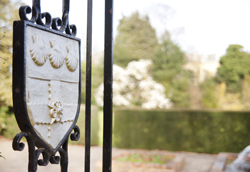Parental warning – 'aiming too high' can damage your child's school results
Release Date 17 November 2015

Parents who aim too high for their children at school can have a negative impact on academic performance, a new University of Reading study has found.
The results suggest that parental aspiration only benefits children if it is realistic. It also highlights the danger of simply aiming high to promote children's academic achievement.
Although several studies have shown that parents with high hopes are good for children's education, very few have examined the effects of over-aspiration. To see if aiming too high had negative effects, the researchers applied a statistical model to two large datasets which investigated how parental aspiration was related to children's maths results.
The statistical analysis showed that the children of over-aspiring parents achieved worse test scores compared to the children whose parents had realistic aims.
Dr Kou Murayama, from the University's School of Psychology and Clinical Language Sciences led the study. He said: "Empowering pupils to leave school with a high standard of education and excellent exam results is crucial for countries and children's futures. Nations need a skilled workforce to compete in a globalised economy - top grades can open doors to higher education and boost job prospects. It's therefore vital we understand how parents can best support their children to achieve their full potential at secondary school. "
Murayama and his colleagues analysed data from a longitudinal study from 2002 to 2007 of 3,530 secondary school students (ages 11 -16 years) and their parents in Bavaria, Germany. In this study maths achievement tests were conducted annually over the five school years. A parental questionnaire was also administered towards the end of every school year assessing two things - parental aspiration (how much they want their child to earn a particular grade) and expectation (how much they believe their child can achieve a certain grade).
Dr Murayama continued: "Our aim was to see if parental aspiration that exceeds realistic expectation could have negative effects on children's academic performance. The results were striking. Children of parents with higher hopes achieved statistically better test scores compared to those who aspired less. This is consistent with previous findings that high parental aspiration is good for children.
"However, when we examined the parents whose aspiration exceeded realistic expectation children's academic performance was damaged. This could be due to children experiencing anxiety, low confidence and frustration brought on by pressure from over-bearing parents - but more research is needed. For instance it could be that parents who aim too high also exert too much control on their children with detrimental effects."
To reinforce the results the researchers attempted to replicate the main findings of the study using data from a two-year study of over 12,000 U.S. students (aged 15) and their parents. The results matched the German study and provided further evidence of the negative effects of parental over-aspiration on a child's academic performance.
Dr Murayama added: "Until now the message for parents has seemed straightforward - aim high for your children, and they will achieve more. In fact, getting parents to have higher hopes for their children has often been a goal of programs designed to improve academic performance in schools.
"Our study does show that parental aspiration can help children achieve better results at school, but only if it is realistic. Simply raising aspiration to improve educational success could be a dangerous message for parents. The focus should not be on blindly increasing parental aspiration but on giving parents the information they need to develop realistic expectations."
The study Don't Aim too High for Your Kids: Parental Over-Aspiration Undermines Students' Learning in Mathematics was published Journal of Personality and Social Psychology
